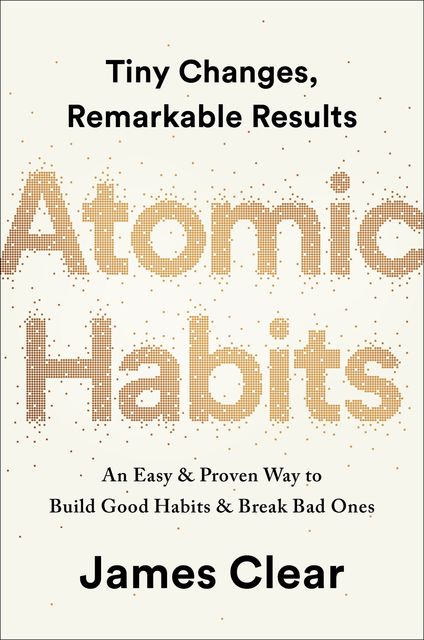Atomic Habits: Tiny Changes, Remarkable Results
Impressions
- Maï Ssashared an impression5 years ago👍Worth reading💡Learnt A Lot🎯Worthwhile
This is a practical guide on how to build habits, I really enjoyed it.
- 洪一萍shared an impression5 years ago💡Learnt A Lot
I know of executives and investors who keep a “decision journal” in which they record the major decisions they make each week, why they made them, and what they expect the outcome to be. They review their choices at the end of each month or year to see where they were correct and where they went wrong.
Never miss twice. The first mistake is never the one that ruins you. It is the spiral of repeated mistakes that follows.
The more immediate the pain, the less likely the behavior. If you want to prevent bad habits and eliminate unhealthy behaviors, then adding an instant cost to the action is a great way to reduce their odds.
Your outcomes are a lagging measure of your habits. Your net worth is a lagging measure of your financial habits. Your weight is a lagging measure of your eating habits. Your knowledge is a lagging measure of your learning habits. Your clutter is a lagging measure of your cleaning habits. You get what you repeat.
Goals vs. Systems:
-Goals are about the results you want to achieve. Systems are about the processes that lead to those results.
-Goals are good for setting a direction, but systems are best for making progress.
-Winners and losers have the same goals.
-Achieving a goal is only a momentary change.
-Goals restrict your happiness.
-Goals are at odds with long-term progress.
-The purpose of setting goals is to win the game. The purpose of building systems is to continue playing the game.
-You do not rise to the level of your goals. You fall to the level of your systems.
Decide the type of person you want to be. Prove it to yourself with small wins.
\\Asking herself, “What would a successful person do?”\\
The formation of all habits is a feedback loop, but it’s important to let your values, principles, and identity drive the loop rather than your results. The focus should always be on becoming that type of person, not getting a particular outcome.
The process of building a habit can be divided into four simple steps:
Cue
Craving
Response
Reward.
You are not motivated by brushing your teeth but rather by the feeling of a clean mouth. You do not want to turn on the television, you want to be entertained.
Every craving is linked to a desire to change your internal state.
The thoughts, feelings, and emotions of the observer are what transform a cue into a craving.
The response is the actual habit you perform, which can take the form of a thought or an action. Whether a response occurs depends on how motivated you are and how much friction is associated with the behavior.
Rewards are the end goal of every habit. The cue is about noticing the reward. The craving is about wanting the reward. The response is about obtaining the reward.
The habit stacking + temptation bundling formula is:
-After [CURRENT HABIT], I will [HABIT I NEED]. After [HABIT I NEED], I will [HABIT I WANT].
-If you want to watch sports, but you need to make sales calls: After I get back from my lunch break, I will call three potential clients (need). After I call three potential clients, I will check ESPN (want).
-The hope is that eventually you’ll look forward to calling three clients or doing ten burpees because it means you get to read the latest sports news or check Facebook. - MWENYA IIshared an impression2 years ago👍Worth reading💡Learnt A Lot🎯Worthwhile
To become the person you desire, personal growth should be your priority. This book offers that step by step guidance to improve your daily habits, eradicating bad ones and implementing good one.
Quotes
- b5790500474has quoted5 years agoThe goal is not to read a book, the goal is to become a reader.
The goal is not to run a marathon, the goal is to become a runner. - Mary Vistohas quoted2 years agoAll big things come from small beginnings
- dzejnlejnhas quoted5 years agothe quality of our lives often depends on the quality of our habits. W


